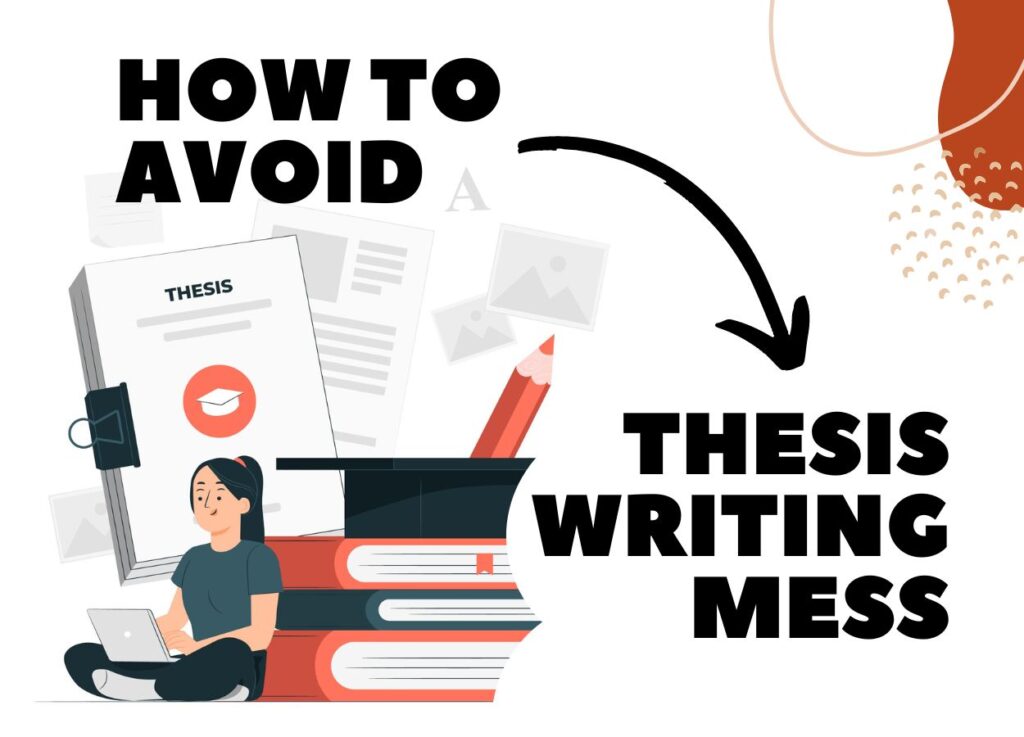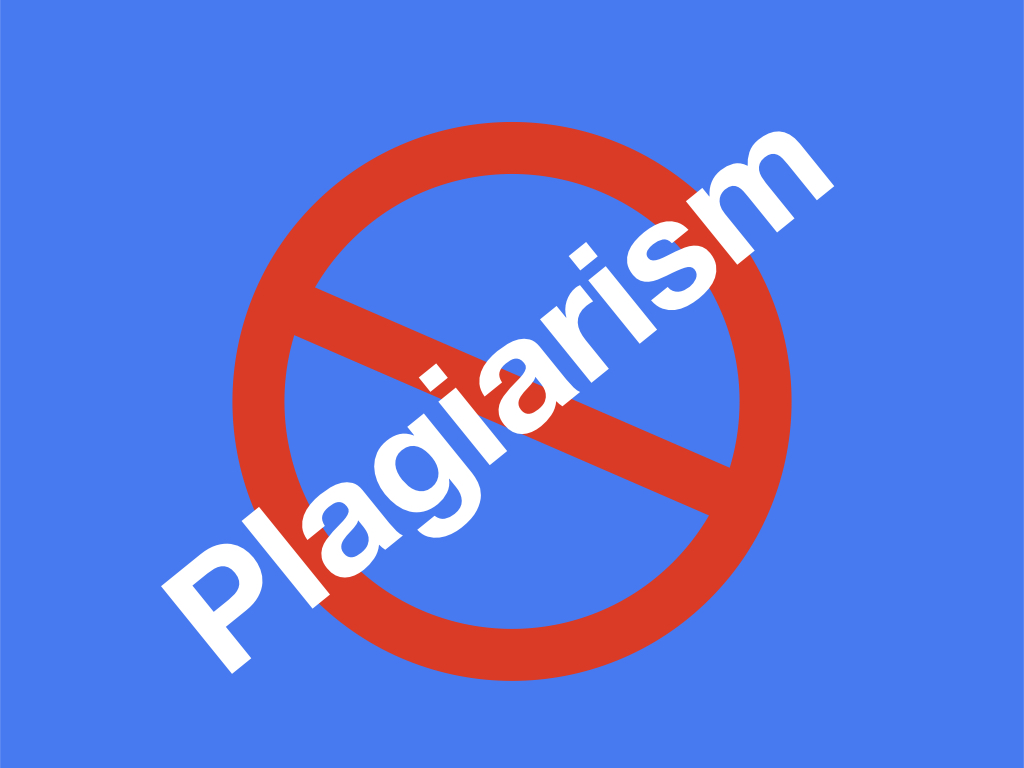“Planning thesis writing, dividing the thesis, using correct— language, citation and referencing, and proofreading your thesis helps to avoid a thesis writing mess. Let’s deeply know how each point and others can help us.”
I am a professional blogger and scientific writer, let me ask you one question– what’s more difficult? Writing a paper from scratch or editing the messed up one? You know the answer. It’s always better to start writing from scratch.
Let me tell you one more important point. Even though you have proper academic or scientific writing knowledge, your thesis still ends up in a mess. The key point is you have to develop thesis writing skills.
“Writing can be learned by writing only.”
This sentence is true but for that, you can’t risk your thesis. Remember, a thesis is a huge writing assignment. One has to look for language– spells and grammar, citations, conceptualization, writing flow, references, paraphrasing and plagiarism. And that’s certainly a difficult task.
So it’s crucial that before starting to write your thesis you should have proper knowledge, on and off the topic. Here is an article, kind of tips you can say, on how you can avoid a thesis writing mess.
Let’s go through it.
Related article: How to write a PhD thesis?
How to Avoid Thesis Writing Mess?
Plan your thesis
I always recommend planning things in your PhD. Every little thing, and that is what our blog is about. Plan your dissertation writing— how and why you will write it. What do you need for writing it and how much time will it take?
Make up your mind. What preparations do you have to do?
For example, how will you write your thesis? Using MS Word, Google Docs or Pages —Right? Learn basic commands, styling options and other related things, so that you can smoothly write your assignment and maintain the flow.
This article will help you: Basic computational skills for PhD students.
What do you need to write a thesis? You need to learn– the English language, spellings and synonyms, and techniques to use citation and referencing. First, learn these things before starting. You have so much time for PhD. Don’t worry about the time.
Once you have these skills, now plan how you will write, and give a specific time to write a thesis. You have to do reading and writing simultaneously. Make a goal, in how much time you will complete your thesis or a specific part or objective.
Protip:
Give a specific time in a day for thesis writing. Write one or two pages every day, no matter how busy you are.
Here is my ideal planning for thesis writing.
| Time in months | Pages | |
| Introduction | 2 | 20 |
| Review of literature | 3 to 4 | 50 to 60 |
| Material and methods | 1 to 2 | 50 |
| Results | 2 | 50 |
| Discussion | 3 to 4 | 30 |
| Conclusion | 1 | 2 |
| Reference | – | 30- 50 |
| Other pages | – | 25 |
| Proofreading | 1 | |
| Thesis Review | 3 to 5 | |
| Total | 21 months | ~250 max |
You need a maximum of 20 months to write an approximate 250 pages dissertation. That’s not impossible if you plan it. However, proper planning starts with dividing your thesis
Divide your thesis
To make your thesis more valuable, organized, and ‘in flow’ and write it with ease, you have to divide your thesis into parts. Common divisions are– background or introduction, Review of literature, methodology, results and discussion, conclusion and references.
Now prepare an outline of your thesis. Meaning, which point goes in which chapter? For example, topics like– history, etymology or current scenario would be the best suited for the introduction.
While
Discussion relevant to other research can be written in the review. Take a look at an example, suppose the thesis is about breast cancer (one of my favorite topics).
| Introduction | Topic background, General introduction, A quick history, Etymology, Some statistics |
| Review of literature | What is breast cancer, Genetics, Symptoms, Pathophysiology, Diagnosis, Classification, Screening, Prevention, Prognosis, and Recent trends. |
| Material and methods | The technique used to study the topic |
| Results | The overall outcomes of the study |
| Discussion | Discuss previous important studies in accordance and discordance with the study |
| Conclusion | Clear conclusion |
| Reference | Common sources used. |
Now you can choose a single point and start writing. But wait, one more point matters too.
Delivering the text
Your writing should not create misunderstandings or difficulties in reading. Your text delivery should be understandable— in a proper academic style, by the way. We until now divided our thesis into chapters, which makes sense in delivering the text.
But we have to do more.
Use sup-topics in the chapter, paragraphs, bullet points, highlight and quote to show the expression and meaning of the text and/or sentence. Carefully craft each sentence, logically organize it and make it expressive, meaningful and understandable.
Start soon
Now understand, anyhow you need to complete your thesis in 20 months (by the way you do not need to write days and nights). Just by writing a single or two pages a day, the goal can be achieved. How simple it is!
If you know the basic process of writing, start immediately. I always recommend starting writing your thesis from the very first day, when you start your PhD. If you begin early, even if it is messed up to some extent, you can manage it.
If you start late and do things in a hurry, trust me you will end up in chaos, mess and a disastrous writeup. Give it time, and write calmly and sensibly. Take rest- timely, read your writing and try hard to make it meaningful.
However, while writing you should have to worry about the flow.
Flow and fluency of writing
A ‘Flow’ is very important in anything. Every Japanese person can understand the importance of flow in life and in everything.
Your one sentence should support the previous one and can make a foundation for the next one. Likewise, every paragraph should be in flow too. In my opinion, to make your writing ‘in flow’, use transition words like furthermore, in addition, in support, contrary, in accordance with, nonetheless, though, although, however, etc.
It literally aligns your sentences if used correctly. See these examples
- Breast cancer has a proven genetic predisposition and is inherited. It occurs by the mutations in BRCA1 or BRCA2 genes, however, not all the mutations are inherited.
- Breast cancer has a genetic base. In breast cancer, the patient feels pain in the chest area. In addition, therapies are available to manage the condition.
Which looks more ‘in flow?’ the first one, right? The second one is, although correct, not delivered well. That’s what I’m trying to explain. You perhaps got my point. But you may wonder how you can know if everything is correct, in a flow or looks good.
Check the next point out.
Examine your writing like a reader:
One day be a writer and another day be a reviewer or critic. It’s important to review or read your writing like a reader. I have a fun exercise. Imagine, you are gonna review the work of someone you don’t like. Now start criticism.
On a serious note, check if,
The individual sentences are in flow, fit in the paragraph and the chapter and make sense or not.
The texts are understandable or not.
Whether the language is correct or not.
How often are varieties of synonyms used?
Citation and referencing
I have previously explained the process and the importance of citation and referencing. You can read the article here: Differences between citation and referencing. It authenticates every piece of information you give in the thesis.
So you must have to use it. Cite every bit of information and enlist a correct reference too.
Review your thesis
Now it’s time. Ask your friend or some expert to proofread and review your thesis. When someone else reads your dissertation it will give more clarity to your writing. Don’t give them any clue, just ask them to read and check if things are understandable or not.
Remember, until now you don’t have to hire someone to review or check English, no need. Don’t waste your money on such things. Once the review completes, you can submit the chapter, the part of the thesis or the entire thesis to your guide for submission.
Happy PhD journey.
Wrapping up:
Writing a dissertation or PhD thesis isn’t that hard. The main thing you have to learn is academic writing skills. That’s it. But as I said, to avoid mess, you have to follow these practical points that I have discussed.
If you have any doubts, please mail us or if you don’t have an idea about scientific writing, feel free to contact us, we can help you, do one-on-one coaching or even write for you. We can help you in all aspects of your PhD.




